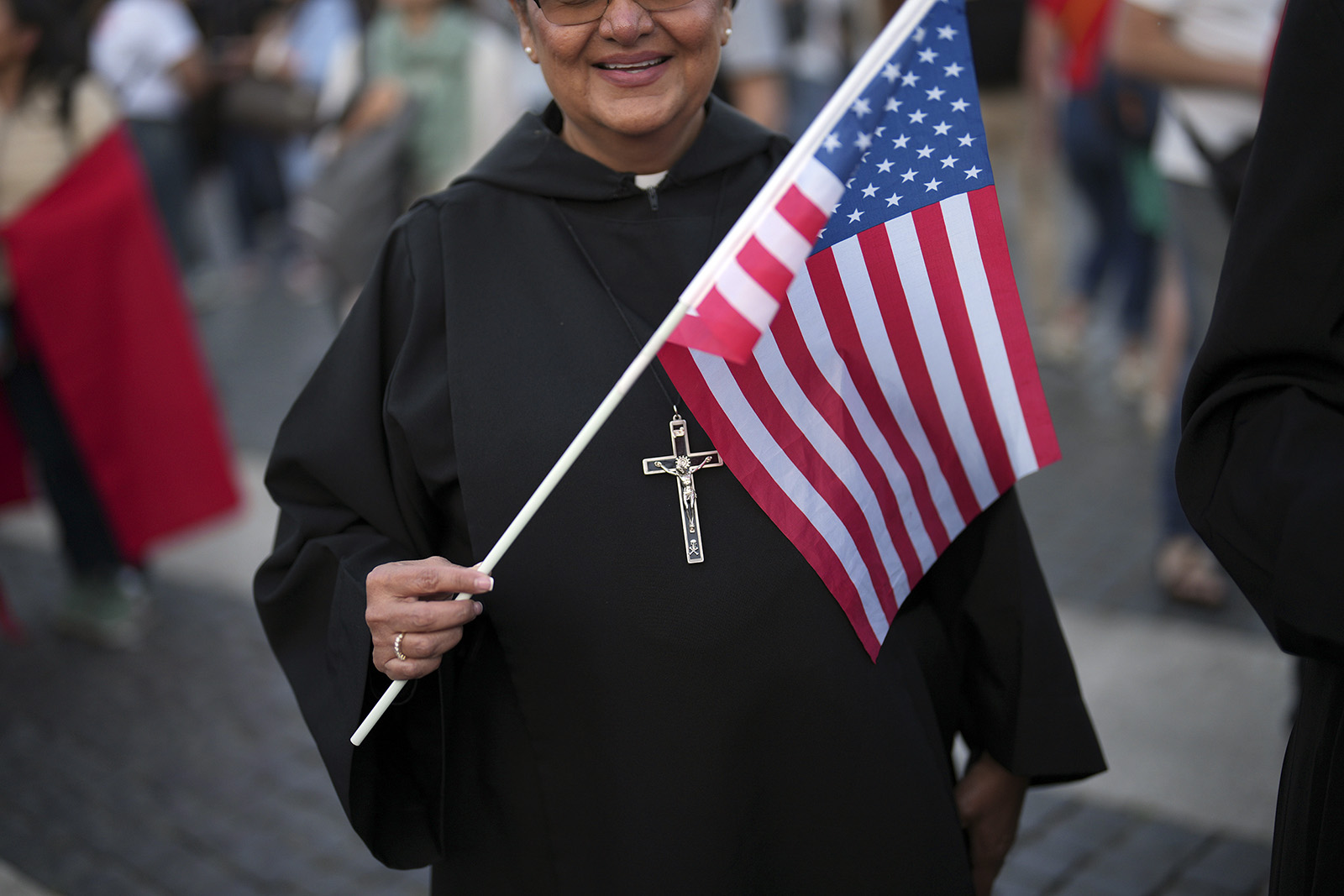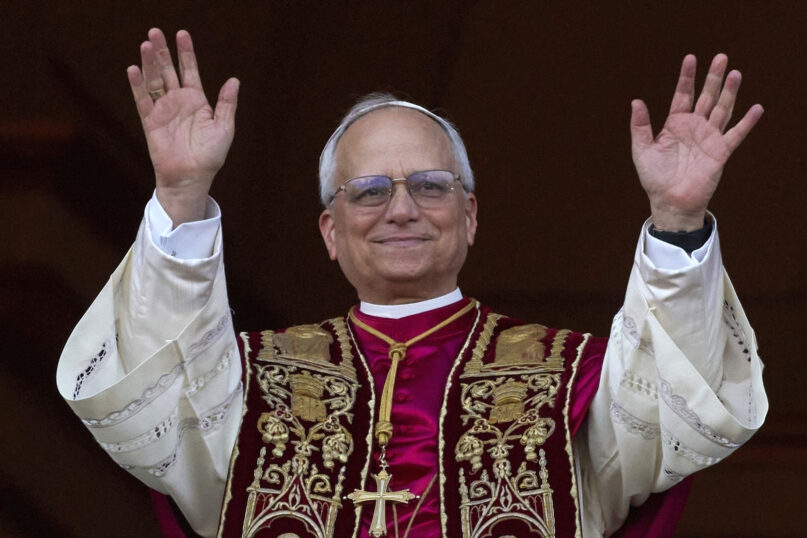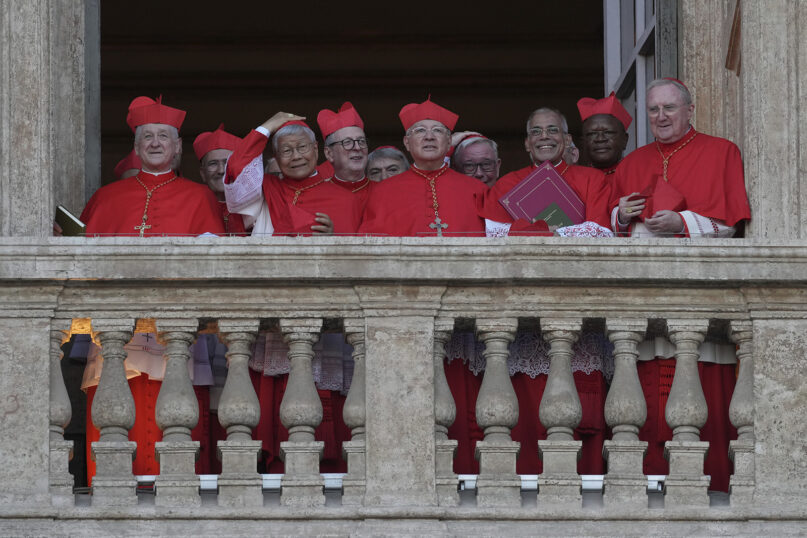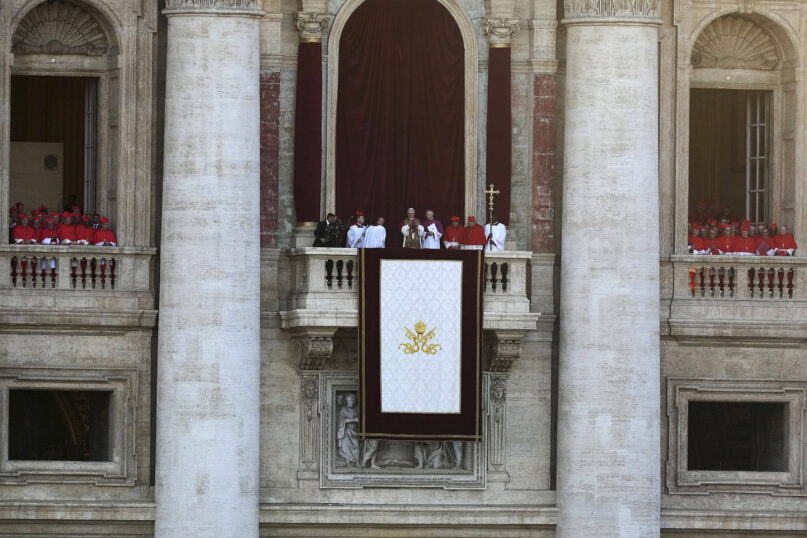
(RNS) — As Cardinal Robert Francis Prevost walked out on the central loggia of St. Peter’s Basilica on Thursday (May 8) and took the name Pope Leo XIV, Steven P. Millies’ initial reaction was a mixture of elation and disbelief. A professor at Catholic Theological Union — a seminary Prevost, a Chicago native, attended — Millies was overjoyed at the idea of a pontiff from so close to home.
“It’s incredible to me that we have a Southsider who’s the pope,” Millies said of the first U.S.-born bishop of Rome.
But Millies also had another thought: By electing Leo, the College of Cardinals was, as Millies put it, “taking a side” in global politics — including U.S. politics.
He was reminded of when Pope John Paul II was elected “from behind the Iron Curtain” in 1978, a move that signaled the church was choosing to challenge the Soviet bloc.
“We are watching authoritarianism swell in all parts of the globe, but is fueled most visibly by the Trump administration in Washington, D.C.,” Millies said. “The election of an American pope, the first American pope … there’s a signal here that the church is taking a side in what’s happening around the globe.”
Leo is already seen as a continuation of the legacy of his predecessor, Pope Francis, who sometimes criticized the Trump administration, particularly over immigration. Some in the church are already arguing the new pope may be more strident on certain issues than his predecessor, and a blatant pushback against President Donald Trump and authoritarianism.

Newly elected Pope Leo XIV appears at the balcony of St. Peter’s Basilica at the Vatican, Thursday, May 8, 2025. (AP Photo/Andrew Medichini)
Leo’s election goes against a long-held unwritten Vatican policy of not selecting pontiffs from a global power, a practice dating back to the early 1300s, when Philip IV of France, Holy Roman Emperor, feuded with Pope Boniface VIII over who wielded more power. Philip engineered the removal of the papacy from Rome to Avignon, where it stayed for the next 67 years. The papacy never fully recovered as a secular power.
In more recent years, however, the motivation for keeping pope and superpower separate is thought to help balance economic and military might with the papacy’s power of moral persuasion.
Massimo Faggioli, a professor at Villanova University, where Leo was an undergraduate, shared Millies’ view that the election of Leo sent a signal. Faggioli believes Trump’s reelection made a U.S.-born pope possible, as it offered cardinals a potential pathway to counter the rightward political shift Trump helped set in motion.
“The Vatican has made its move,” Faggioli said, noting Leo’s elevation doubles as an implicit rebuke of right-wing Catholicism in the U.S.
Trump, for his part, reacted warmly to Leo’s election.
“Congratulations to Cardinal Robert Francis Prevost, who was just named Pope,” Trump posted on Truth Social. “It is such an honor to realize that he is the first American Pope. What excitement, and what a Great Honor for our Country. I look forward to meeting Pope Leo XIV. It will be a very meaningful moment!”

Cardinals following the election of Cardinal Robert F. Prevost as the 267th pope, choosing the name of Pope Leo XIV, at the Vatican, Thursday, May 8, 2025. (AP Photo/Andrew Medichini)
But while Leo reportedly voted in Republican primaries in the past, many U.S. conservatives were more skeptical. In an appearance on the right-wing Newsmax network, former U.S. Sen. Rick Santorum of Pennsylvania, a Catholic, said he had “very little optimism” about the new pontiff. Santorum, who once challenged Francis’ support for taking action on climate change, accused Leo of using “buzzwords of the left” in his first speech as pope, and took issue with his celebration of Francis in his remarks from the balcony at St. Peter’s. “This too shall pass,” Santorum said.
An account on Twitter, now X, purportedly belonging to Leo provoked outrage in conservative activist Laura Loomer, who pointed to articles reposted from the feed showing prominent Catholics criticizing Trump.
“He is anti-Trump, anti-MAGA, pro-open Borders, and a total Marxist like Pope Francis,” Loomer wrote. “Catholics don’t have anything good to look forward to. Just another Marxist puppet in the Vatican.”
Another Trump ally, onetime presidential adviser Steve Bannon, singled out Prevost — now Pope Leo — as someone he hoped cardinals would steer clear of ahead of the conclave vote.
“I do think one of the dark horses, and I think, unfortunately, one of the most progressive, is Cardinal Prevost,” Bannon said during an appearance on the Piers Morgan show. Bannon added that he saw the Chicago native as “one of the ones closest to Francis ideologically.”
U.S. Rep. Nancy Pelosi of California, a Catholic Democrat, praised Leo’s election. The former House speaker noted that a previous Pope Leo — Leo XIII — was the author of “Rerum novarum” — an encyclical that, among other things, outlined rights of workers to form unions and railed against unrestricted capitalism.
“For many of us, the name Leo XIV happily brings to mind Leo XIII’s Rerum novarum which was a blessing for working people,” Pelosi said in a statement. “And it is heartening that His Holiness continued the blessing that Pope Francis gave on Easter Sunday: ‘God loves everyone. Evil will not prevail.’”

Pope Leo XIV appears on the balcony of St. Peter’s Basilica after his election, at the Vatican, Thursday, May 8, 2025. (AP Photo/Antonio Calanni)
She added: “In his own words, Pope Leo XIV said, ‘We can be a missionary church, a church that builds bridges, that is always open to receive everyone.'”
Natalia Imperatori-Lee, a theologian and professor of religious studies at Manhattan University, said in an email, “the name is everything!”
“There’s a lot that is very good about him signaling an affinity with (Leo XIII), who confronted the industrial revolution with a robust defense of worker’s rights and labor organizing,” she wrote, adding that the prior Leo launched Catholic Social Teaching, a movement that engages the church with the world’s problems. “All of that points to being in the same vein as Francis, but without being Francis II.”
Joaquin Castro, whose mother once sat on the board of the liberal-leaning Catholic social-justice organization Network, congratulated Leo on being the first American pope: “and a Pope reflective of the late Pope Francis’ creed to choose light over darkness, to be kind to our neighbor, and to work to uplift and unify all people in a divided world. Congratulazioni!” he posted on X.
Leo is unlikely to match perfectly the positions of either American political party and will disappoint many as he runs a church that operates far outside of any local political faction. But he knows the U.S. political culture more intimately than any other pope in history — knowledge that may prove useful, as he is unlikely to escape politics altogether.
